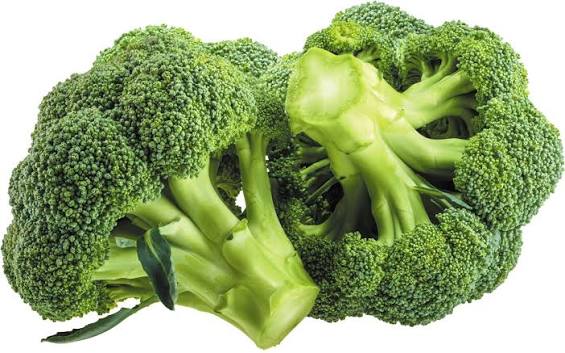Unveiling Broccoli's Power: The Regular Impact on Your Body
:max_bytes(150000):strip_icc()/TypesOfBroccoli-6dd837ebc29047889872aeeb175a3646.jpg)
Broccoli, scientifically known as Brassica oleracea, is widely regarded as a superfood due to its extensive health benefits. This cruciferous vegetable is rich in fiber, vitamins, and antioxidants, supporting overall wellness. It aids hydration, boosts brain function, and combats inflammation, while offering protection against cancer and heart disease across its diverse varieties.
A medium stalk of raw broccoli contains just 45 calories, less than 1 gram of fat, 80 mg of sodium, 8 grams of carbohydrates, 3 grams of fiber, and 4 grams of protein. It delivers 220% of the Daily Value (DV) for vitamin C—essential for immunity and bone health—and 13% DV for potassium. Broccoli also provides vitamin K, folic acid, calcium, magnesium, and selenium.
Its fiber content—about 2 grams per cup—promotes digestive regularity, satiety, and heart health by lowering cholesterol. It also helps regulate blood sugar and insulin for sustained energy. With 68 grams of water per cup, broccoli supports hydration, joint lubrication, temperature regulation, and constipation prevention, while adding volume to meals for weight management.
As a cruciferous vegetable alongside cauliflower, kale, and Brussels sprouts, broccoli contains compounds that neutralize carcinogens, inhibit cancer cell growth, and promote apoptosis. It also protects heart health by reducing arterial damage and hardening, a precursor to heart attacks and strokes.

Broccoli enhances brain health with lutein and zeaxanthin, which support cognitive function and protect against age-related decline. For bones, it supplies vitamin K, magnesium, phosphorus, calcium, copper, zinc, and vitamin C to maintain density and strength.
Its anti-inflammatory properties, linked to lower pro-inflammatory markers, reduce chronic disease risk. Rich in antioxidants, broccoli detoxifies harmful chemicals, counters UV skin damage, and protects eye health—reducing risks of macular degeneration and cataracts via lutein and zeaxanthin.
Broccoli comes in many varieties with unique traits but shared benefits. Calabrese, the common type, has tight green florets and a crunchy, earthy flavor. Chinese broccoli (Gai Lan) offers sweet stalks, bitter leaves, and higher calcium and folate. Broccolini, a hybrid, has long stems, subtle sweetness, and potent phenolic compounds (though boiling reduces them). Broccoli rabe, from the turnip family, is bitter with high vitamin A, C, folate, and potassium. Di Cicco features small bluish heads and an earthy-sweet taste; the entire plant is edible. Purple sprouting broccoli turns green when cooked, with anthocyanins protecting against cardiovascular and neurodegenerative diseases. Waltham resembles Calabrese but with longer stalks and blue-tinted heads.
Though rare, allergic reactions are possible. Undigestible sugars can cause gas, bloating, or discomfort, and excess vitamin C may lead to diarrhea or cramps. Store unwashed broccoli in a loosely tied plastic bag in the fridge and use within 3–5 days.
Versatile in the kitchen, broccoli can be eaten raw, steamed (to retain nutrients), air-fried, stir-fried, blended into smoothies, or added to soups, salads, and baked goods. Some enjoy it in “broccoli coffee.” Varieties like broccoli rabe and Gai Lan are best cooked, while others shine raw.
In summary, broccoli supports brain, heart, bone, and systemic health with fiber, vitamins, minerals, and antioxidants. Despite minor side effects like bloating, its diverse varieties make it a nutritional powerhouse.
You may also like...
Ndidi's Besiktas Revelation: Why He Chose Turkey Over Man Utd Dreams

Super Eagles midfielder Wilfred Ndidi explained his decision to join Besiktas, citing the club's appealing project, stro...
Tom Hardy Returns! Venom Roars Back to the Big Screen in New Movie!

Two years after its last cinematic outing, Venom is set to return in an animated feature film from Sony Pictures Animati...
Marvel Shakes Up Spider-Verse with Nicolas Cage's Groundbreaking New Series!

Nicolas Cage is set to star as Ben Reilly in the upcoming live-action 'Spider-Noir' series on Prime Video, moving beyond...
Bad Bunny's 'DtMF' Dominates Hot 100 with Chart-Topping Power!

A recent 'Ask Billboard' mailbag delves into Hot 100 chart specifics, featuring Bad Bunny's "DtMF" and Ella Langley's "C...
Shakira Stuns Mexico City with Massive Free Concert Announcement!

Shakira is set to conclude her historic Mexican tour trek with a free concert at Mexico City's iconic Zócalo on March 1,...
Glen Powell Reveals His Unexpected Favorite Christopher Nolan Film

A24's dark comedy "How to Make a Killing" is hitting theaters, starring Glen Powell, Topher Grace, and Jessica Henwick. ...
Wizkid & Pharrell Set New Male Style Standard in Leather and Satin Showdown

Wizkid and Pharrell Williams have sparked widespread speculation with a new, cryptic Instagram post. While the possibili...
Victor Osimhen Unveils 'A Prayer From the Gutter', Inspiring Millions with His Journey

Nigerian football star Victor Osimhen shares his deeply personal journey from the poverty-stricken Olusosun landfill in ...
:max_bytes(150000):strip_icc()/Health-Stocksy-4064350-3ed9a140f2614a90b3bc04147a33424c.jpg)
:max_bytes(150000):strip_icc()/Health-GettyImages-97556416-da7851c0a79d469ba5721881d311ad62.jpg)
:max_bytes(150000):strip_icc()/Health-GettyImages-1345641202-0f244bc4d291478e9a14c046340f81ca.jpg)
:max_bytes(150000):strip_icc()/Health-GettyImages-1826614930-72c08b81b4474af9a9f86438e5f78485.jpg)
:max_bytes(150000):strip_icc()/health-black-vs-green-tea-1-f0c5701a6dc84b478a67f3984bfbec63.jpg)